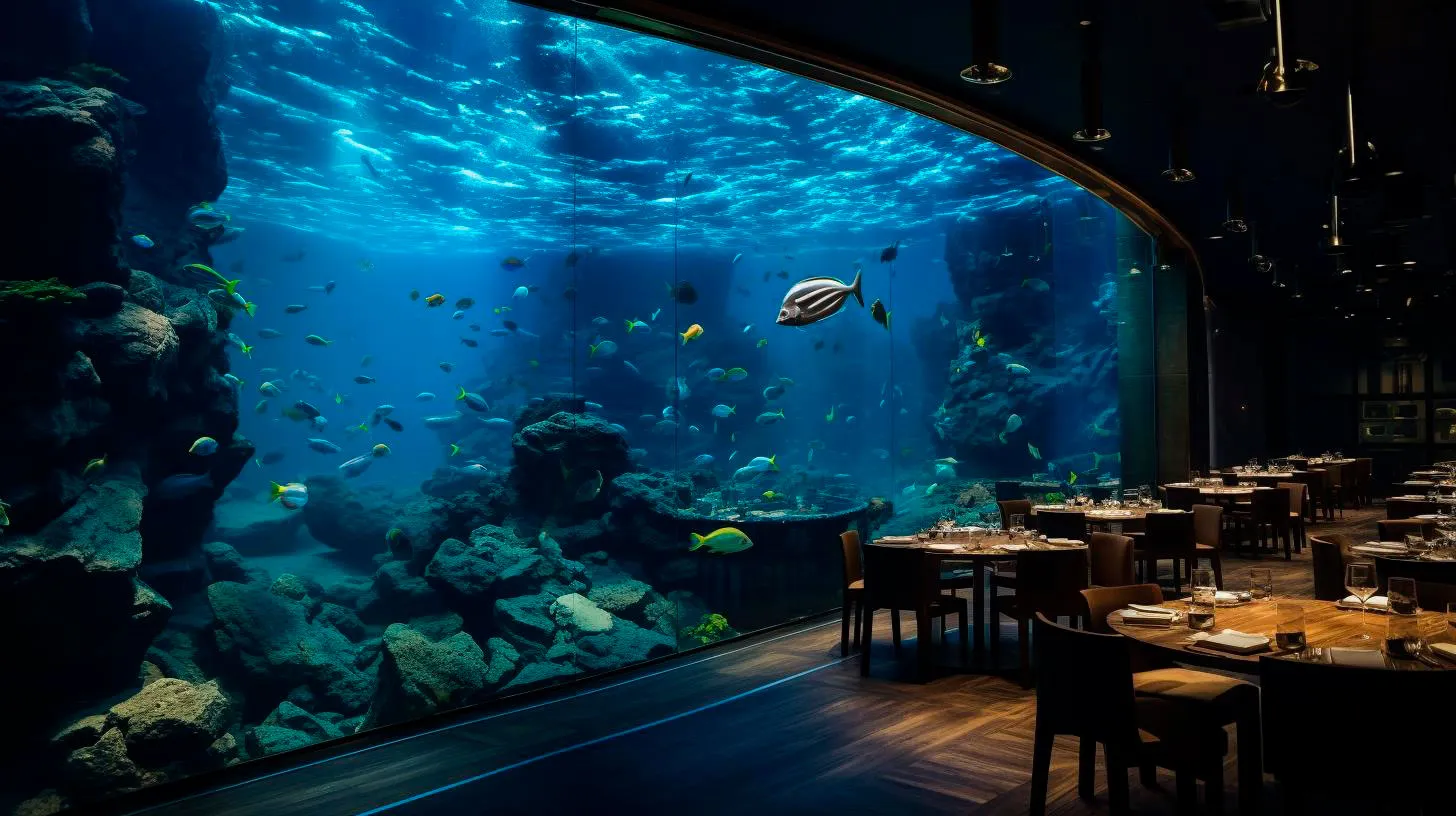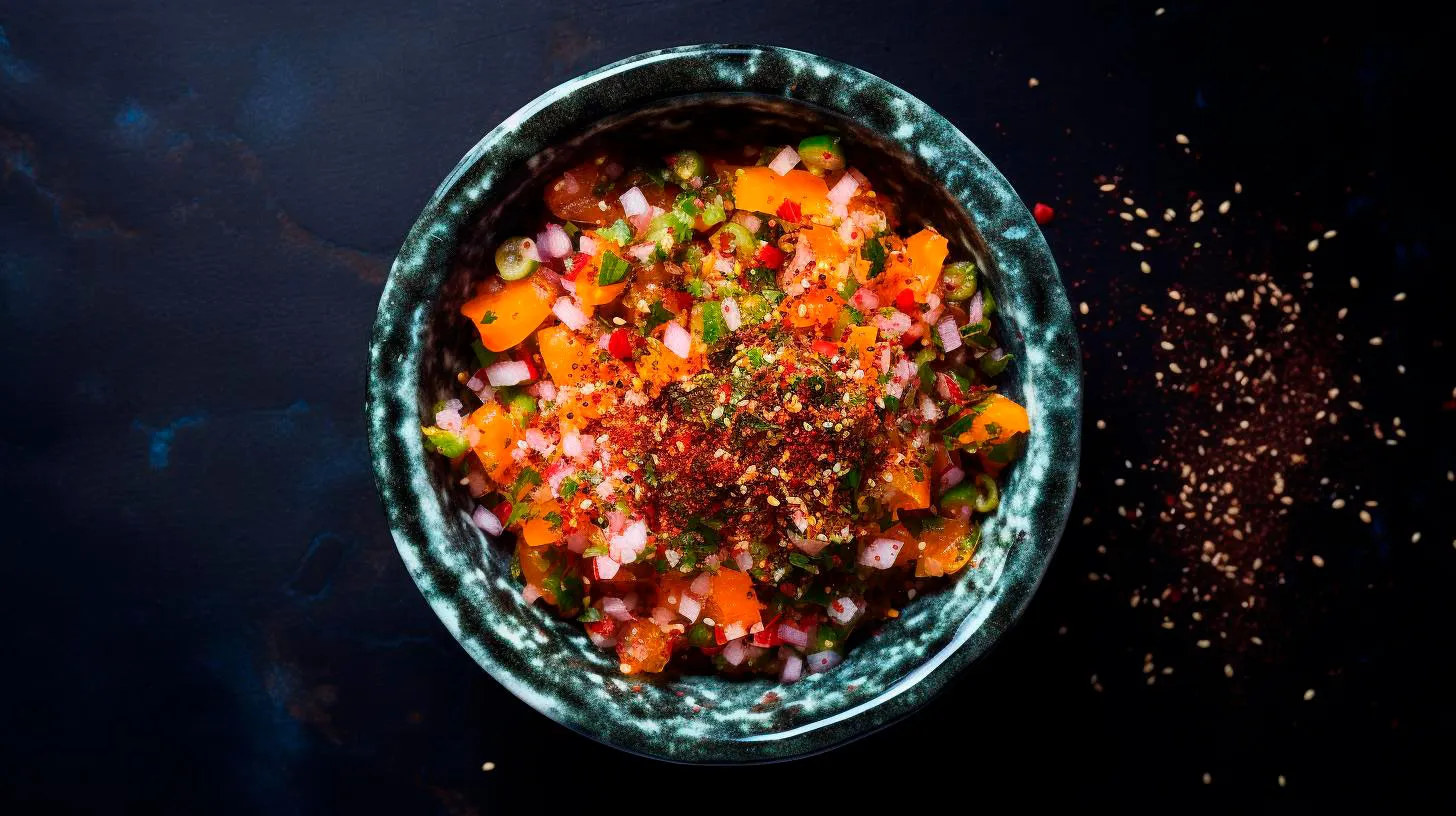The Connection Between Food and Ocean Conservation
In this blog post, we will explore the connection between food and ocean conservation, highlighting the impact of our choices and the steps we can take to protect our precious marine resources.
The Impact of Overfishing
Overfishing is one of the most significant threats to ocean conservation. Data from the United Nations Food and Agriculture Organization (FAO) reveal that approximately 33% of global fish stocks are overexploited, depleted, or recovering from depletion. This unsustainable fishing practice disrupts the ecosystem’s equilibrium and endangers the survival of countless marine species.
Key Takeaway: Overfishing poses a severe threat to the balance of marine ecosystems and the survival of marine species.
The Importance of Sustainable Fishing Practices
Sustainable fishing practices are crucial to preserve ocean resources and ensure their availability for future generations. One approach is implementing fishing quotas and size limits to prevent overexploitation of individual fish populations. By adhering to these limits, we can allow fish populations to recover and maintain a healthy balance within their ecosystems.
Key Takeaway: Sustainable fishing practices, such as fishing quotas and size limits, are essential in preserving ocean resources and maintaining healthy ecosystems.
The Role of Aquaculture in Ocean Conservation
Aquaculture, or fish farming, offers a potential solution to overfishing. The demand for seafood continues to rise, and aquaculture provides an opportunity to meet this demand without further depleting wild fish populations. However, it is essential to ensure responsible aquaculture practices that minimize environmental impacts.
- Advantage: Aquaculture can meet the growing demand for seafood without overexploiting wild fish populations.
- Key Takeaway: Responsible aquaculture practices are necessary to avoid negative environmental impacts.
The Impact of Plastic Pollution
Plastic pollution is another critical issue that affects oceans and marine life. Each year, approximately 8 million metric tons of plastic enter the ocean, leading to devastating consequences. Marine animals often mistake plastic debris for food, resulting in ingestion and entanglement. Moreover, the presence of microplastics in the water poses a significant threat to marine biodiversity.
Key Takeaway: Plastic pollution poses a severe threat to marine life and biodiversity.
The Importance of Sustainable Seafood Choices
As consumers, our choices have immense power to drive change. When it comes to seafood, making sustainable choices can have a significant impact on ocean conservation. Look for eco-labels such as the Marine Stewardship Council (MSC) certification, which identifies seafood harvested from well-managed, sustainable sources. Additionally, opting for locally sourced seafood reduces carbon emissions associated with transportation.
- Advantage: Choosing sustainable seafood supports well-managed fisheries and helps protect marine ecosystems.
- Key Takeaway: Eco-labels and local sourcing allow consumers to make more sustainable seafood choices.
The Benefits of Plant-Based Alternatives
Considering plant-based alternatives can also be a significant step towards ocean conservation. The production of livestock feed contributes to deforestation and water pollution, which indirectly impacts marine ecosystems. By incorporating more plant-based options into our diets, we can reduce the demand for environmentally harmful practices and promote a more sustainable food system.
Key Takeaway: Plant-based alternatives help reduce the environmental impact associated with livestock farming and support a more sustainable food system.
In conclusion, the connection between food and ocean conservation is undeniable. Our food choices significantly influence the health and well-being of marine ecosystems. By practicing sustainable fishing, supporting responsible aquaculture, reducing plastic pollution, making sustainable seafood choices, and considering plant-based alternatives, we can all contribute to the preservation of our oceans. Let us embrace the power we have as consumers and together protect the heart of our planet, the mighty ocean.
Can Sushi Save the Seas
The Challenge of Sustainable Seafood
With over 3 billion people relying on seafood as their primary source of protein, ensuring the sustainability of our oceans has become an urgent global concern. Overfishing, destructive fishing methods, and habitat destruction pose serious threats to marine life and can lead to irreversible damage to ecosystems. The sushi industry, in particular, has faced criticism for contributing to these problems due to the high demand for popular fish species like tuna, salmon, and shrimp.
Sustainable Sushi Solutions
Fortunately, various innovative solutions have emerged within the sushi industry to promote sustainability and preserve our oceans. Some of the key strategies include:
- Responsibly sourced seafood: Sushi restaurants and suppliers now prioritize sourcing their seafood from sustainable fisheries that use responsible fishing practices.
- Alternative ingredients: Chefs are experimenting with alternative ingredients, such as plant-based substitutes and lesser-known fish species, to reduce pressure on overfished species.
- Supporting local fisheries: By sourcing seafood from local, community-based fisheries, sushi establishments can reduce their carbon footprint and support sustainable livelihoods.
- Traceability and transparency: Some sushi restaurants provide detailed information about the origin of their seafood and the sustainability practices implemented, giving consumers the power to make informed choices.
These solutions have not only contributed to the health of our oceans but have also introduced exciting new flavors and experiences to sushi lovers. For example:
- Plant-based sushi rolls offer a unique twist on traditional sushi, appealing to both vegans and environmentally conscious consumers.
- Exploring lesser-known fish species expands culinary diversity and reduces the overexploitation of popular fish species.
- Supporting local fisheries promotes the preservation of traditional fishing practices and indigenous knowledge.
- Transparency in sourcing allows consumers to actively support sustainable practices and hold sushi establishments accountable.
The Advantages of Sustainable Seafood
Sustainable seafood not only benefits the oceans but also offers a range of advantages for consumers, the fishing industry, and the planet as a whole:
- Preservation of marine biodiversity: By promoting sustainable fishing practices, we can help protect diverse marine ecosystems and ensure the survival of countless species.
- Enhanced food security: Sustainable fishing practices help maintain fish populations, ensuring a stable and long-term food supply for generations to come.
- Healthier choices: Sustainable seafood is often fresher and free from harmful chemicals, providing consumers with healthier and more nutritious dining options.
- Economic growth: Embracing sustainable fishing practices supports local economies, creates jobs, and fosters a thriving seafood industry.
Key Takeaways for Consumers
If you are a sushi enthusiast or simply want to make a positive impact on ocean conservation, here are some key takeaways to keep in mind:
- Choose sustainable restaurants: Look for sushi establishments that prioritize sustainability and source their seafood responsibly.
- Opt for alternative ingredients: Explore new flavors and try sushi rolls made with alternative ingredients, reducing your reliance on overfished species.
- Support local fisheries: Seek out restaurants that support local fishermen and community-based fisheries, helping to preserve traditional practices and support sustainable livelihoods.
- Ask questions: Be curious and inquire about the origin and sustainability practices of the seafood served at your favorite sushi spot.
By making conscious choices and supporting sustainable sushi practices, we can contribute to the preservation and restoration of our oceans. Let’s indulge in sushi guilt-free, knowing that we are helping to save the seas one delicious bite at a time!



